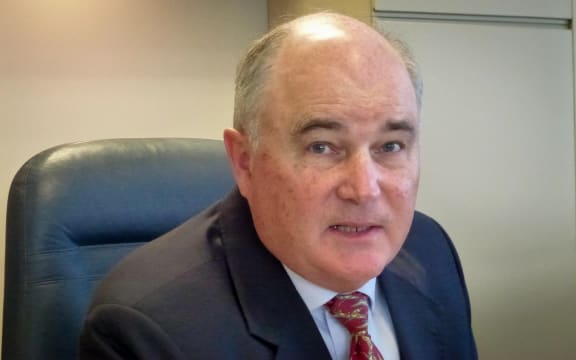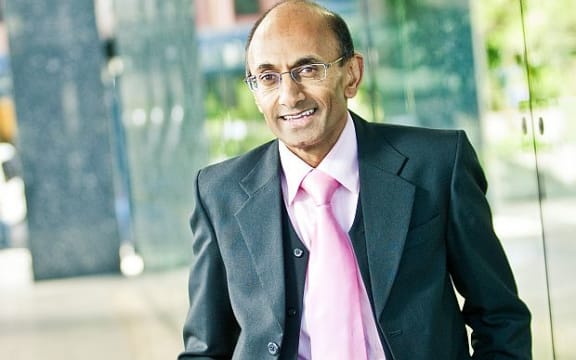New Zealanders' housing-related debt is near record levels prompting warnings of a risk to the economy.

People are feeling wealthy because their houses are said to be worth a lot more, said BERL chief economist Ganesh Nana. Photo: 123RF
Housing dominates New Zealanders' wealth and debt, and the overheated market is a key driver of the economy.
At the end of May, households owed $220 billion in housing-related debt, which is near record highs at 88 percent of annual economic output, or GDP.
The market value of the country's housing stock had grown to $905bn, or more than three-and-a-half times that of GDP.

Kim Campbell Photo: RNZ / Todd Niall
Northern Employers and Manufacturers Association (EMA) chief executive Kim Campbell said the mood was buoyant, particularly among home owners.
"Nobody is going to stop immigration any time soon. We're not going to be able to untangle our planning laws any time soon. The government is clearly floundering on the housing sector.
"So we're going to see house price inflation continuing for some time, so the wealth factor will continue and the party will continue."
But some, including BERL chief economist Ganesh Nana, argue it is not sustainable.
"At the moment we've got growth coming out of people feeling wealthy because their houses are said to be worth a lot more. It's basically paper wealth. And unfortunately paper wealth or paper values can be written down," he said.
Council of Trade Unions economist Bill Rosenberg said growth had been fed by too much debt.
"We're in a situation where the debt levels are getting too high, the property prices are getting out of kilter with people's income, and is becoming very high risk," Dr Rosenberg said.
He said the government's narrow focus on keeping a lid on spending and reducing debt had come at the expense of building a high growth, high wage export economy.
ANZ Bank chief economist Cameron Bagrie said the last time New Zealand indulged in consumption-led growth, it did not end well.
"If I go back prior to the global financial crisis, we had a recession prior to global events.
"The household savings rate was minus six cents; so we were borrowing and spending our way to growth and running down our savings buffer, the current account was 8 percent of GDP, net external debt was 85 percent of GDP, household debt to income was 159 percent," Mr Bagrie said.
By all those measures, except debt-to-income ratios at 163 percent, New Zealand was now better placed.
However Mr Bagrie warned there were early signs of deterioration on many of the indicators.
"We're not really seeing those giddy excesses ... to what we were like in 2006-07.
"But we're on notice because if we saw another 18 months of what we've seen in the past three months across the property market I think you can pretty much guarantee those economic indicators are going to tell a completely different story in regard to excesses."

Ganesh Nana Photo: Supplied
BERL's Ganesh Nana said a fragile global economy meant a debt-laden New Zealand was vulnerable.
"That's the biggest risk ... something goes wrong overseas that we won't escape from, and then we are not in the best place to withstand that," Dr Nana said.
Reducing the lopsided nature of growth away from consumption and toward exports will not be easy.
The dollar remains stubbornly high. Exports, while resilient despite lower dairy prices, have stalled at under 30 percent of GDP, and show little sign of reaching the government's target of 40 percent by 2025.
Mr Campbell said it was even more urgent the Beehive doubled its efforts to support measures that boost high-value exports.
"We keep going on about investing in science and innovation and technology and more important, investing in automation and automatic equipment.
"That is where our future in going to lie if we are going to be a richer country," Mr Campbell said.






